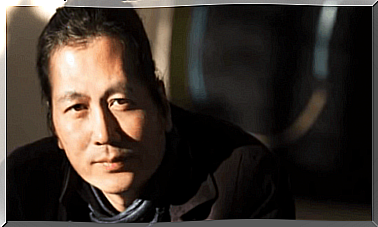Difficult Periods Can Actually Be Healing
Difficult periods have taught me the most important knowledge about life and maturity. It was on these occasions that I managed to heal my wounds.
These occasions were periods of slow healing that gave me high doses of self-love. They gave me a few drops of caution, a lot of wisdom and an opportunity for reflection. At the end of the day, there are very few things that require so much of us. On these occasions, there are only two choices: to stay in prison or move on.
William Shakespeare said in his play “The Storm” that no matter what happens, even during the most tumultuous days, the hours go by. Time passes.
Since it is true that there is logic in this reasoning, there is also an aspect that cannot be overlooked. The way we handle the storm will determine how it affects us afterwards.
So if you desperately cling to a traumatic event, to disappointment or frustration, the days will pass – one after the other. Like insects get stuck in sticky sawdust. In the end, you become a shell of melancholy and desperation, covered in amber.
But we can actually benefit from difficult periods. We can use them to heal and gain new strength. During these periods we can learn to accept the situation and see it with new eyes. If we do, time will always move forward, to our advantage.
It should of course be mentioned that this road is not easy to walk. Almost none of us are prepared for this type of attack. No one tells us how we are supposed to handle the things that fate sometimes places in the middle of our path.
Most of us have a laid back attitude when it comes to painting a picture about ourselves. We choose the fastest route between two points. We do not find ourselves in uncertainty. We prefer to enjoy worrying. We like when things go as planned.
Nor is it that these preferences are just evil. They are not bad because they just follow what our brain always wants us to do. The brain is programmed to avoid risks, save energy and survive in the perfect and controlled area known as our “comfort zone.”
Yet we all know that difficult periods come in many different forms and when we least expect them. They can come in the form of money problems, a separation, the loss of someone, a betrayal or even an existential crisis.
These tough situations usually have one thing in common. They involve us losing control of some part of our lives. This often gives the feeling of vulnerability, that self-esteem takes a hit and that you feel vulnerability as well as fear. They erase the present and who we are, and transform us into a tangle of incoherent lines.
An interesting strategy that psychology presents to us is to deal with these situations by transforming them into opportunities for reflection. We need to learn to create our own history. We need to let history be about healing, reflection, change and new perspectives.
This interval to reconnect with ourselves can actually give rise to new chapters that are more satisfying, rich and authentic.
If you have never heard of narrative or narrative therapy, it is appropriate to learn about it now. What we are talking about is a therapeutic method where the person gradually becomes an expert on their own life.
You become an expert by reflecting and reorganizing your thoughts and by telling your own story. In this way you can understand why things happened and how they happened. You also have the opportunity to “create” alternative stories that can help take one past the current problem.









